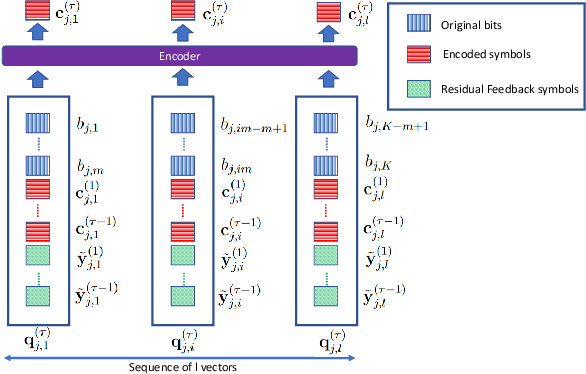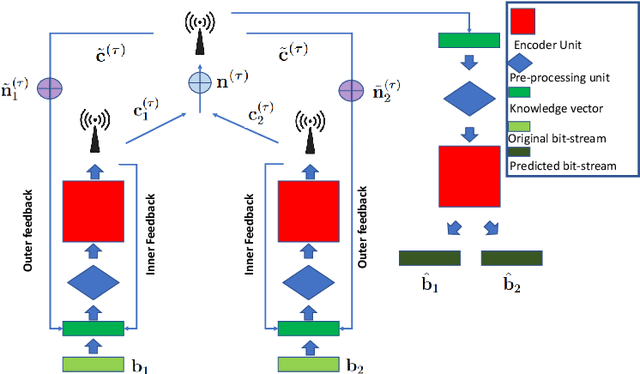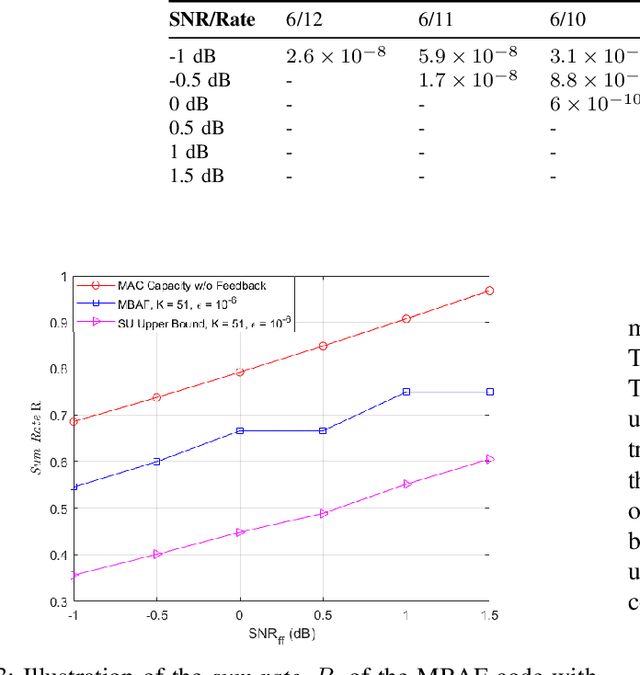Do not Interfere but Cooperate: A Fully Learnable Code Design for Multi-Access Channels with Feedback
Paper and Code
Jun 01, 2023



Data-driven deep learning based code designs, including low-complexity neural decoders for existing codes, or end-to-end trainable auto-encoders have exhibited impressive results, particularly in scenarios for which we do not have high-performing structured code designs. However, the vast majority of existing data-driven solutions for channel coding focus on a point-to-point scenario. In this work, we consider a multiple access channel (MAC) with feedback and try to understand whether deep learning-based designs are capable of enabling coordination and cooperation among the encoders as well as allowing error correction. Simulation results show that the proposed multi-access block attention feedback (MBAF) code improves the upper bound of the achievable rate of MAC without feedback in finite block length regime.
 Add to Chrome
Add to Chrome Add to Firefox
Add to Firefox Add to Edge
Add to Edge